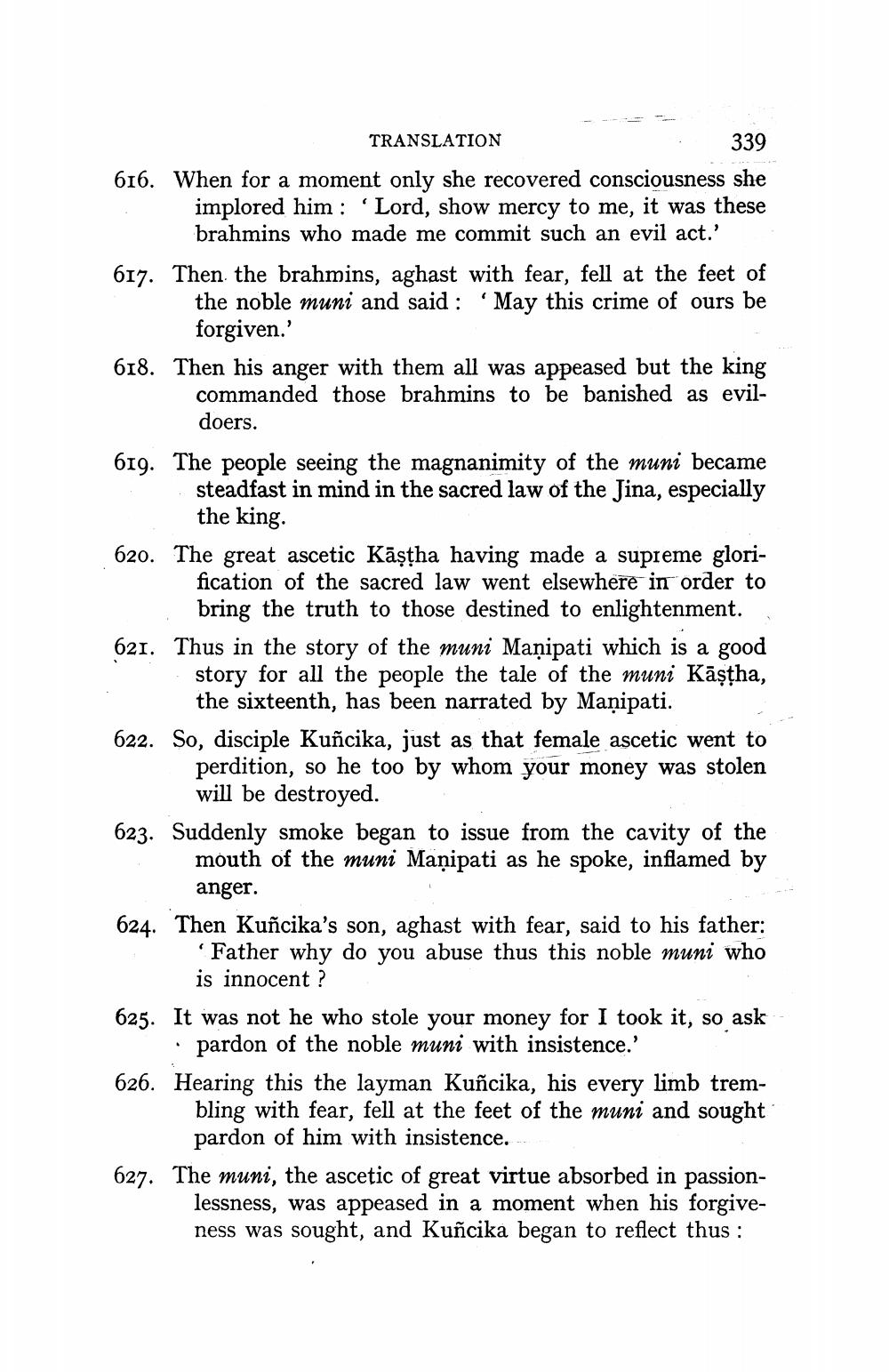________________
TRANSLATION
. 339 616. When for a moment only she recovered consciousness she
implored him: ‘Lord, show mercy to me, it was these
brahmins who made me commit such an evil act.' 617. Then the brahmins, aghast with fear, fell at the feet of
the noble muni and said : May this crime of ours be
forgiven.' 618. Then his anger with them all was appeased but the king
commanded those brahmins to be banished as evildoers.
619. The people seeing the magnanimity of the muni became
steadfast in mind in the sacred law of the Jina, especially
the king. 620. The great ascetic Kāştha having made a supreme glori
fication of the sacred law went elsewhere in order to
bring the truth to those destined to enlightenment. 621. Thus in the story of the muni Manipati which is a good
story for all the people the tale of the muni Kāştha,
the sixteenth, has been narrated by Manipati. 622. So, disciple Kuñcika, just as that female ascetic went to
perdition, so he too by whom your money was stolen
will be destroyed. 623. Suddenly smoke began to issue from the cavity of the
mouth of the muni Maṇipati as he spoke, inflamed by
anger. 624. Then Kuñcika's son, aghast with fear, said to his father:
Father why do you abuse thus this noble muni who
is innocent ? 625. It was not he who stole your money for I took it, so ask
· pardon of the noble muni with insistence.' 626. Hearing this the layman Kuñcika, his every limb trem
bling with fear, fell at the feet of the muni and sought
pardon of him with insistence. 627. The muni, the ascetic of great virtue absorbed in passion
lessness, was appeased in a moment when his forgiveness was sought, and Kuñcika began to reflect thus :




